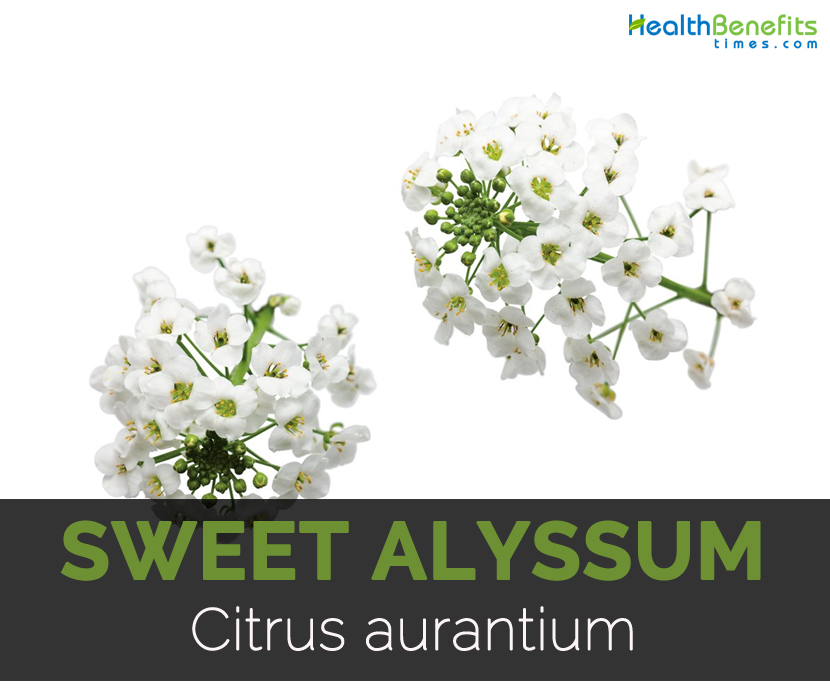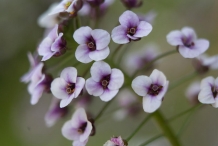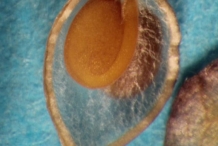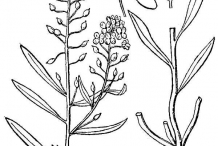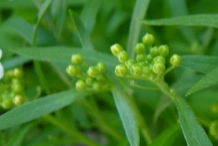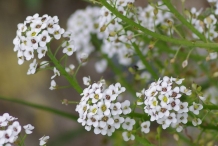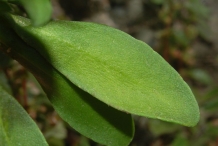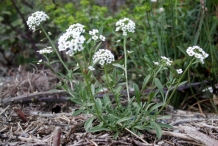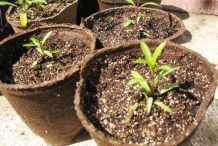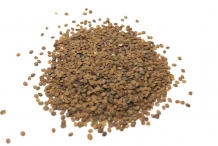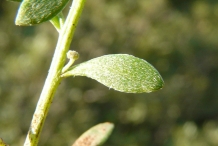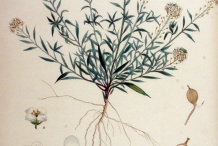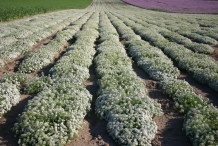The herb is pubescent, erect, ascending or procumbent and annual to short lived perennial reaching 10 to 30 centimeters high with basal branching. Leaves are simple, sessile, linear-lanceolate to lanceolate measuring 1.5 to 5 cm long and 0.2 to 0.4 cm wide. It has entire margin, acute to subacute apex and attenuated base. Flowers are fragrant and small with 1.5 to 2 mm long sepals which are pubescent. Petals are obovate or suborbicular about 2-3 by 1.5 to 2.5 mm and is in white, apricot, pin and deep purple to purple. It has short and long stamens with nectar glands at base and ovate anthers. Silicula is 2.5 to 3.5 mm long, obovate to suborbicular and sparsely pubescent. Seeds are light to reddish brown, ellipsoidal measuring 1 to 1.5 mm.
Traditional uses
- In Spain, Alyssum is used as an astringent for treating gonorrhea.
- It is used to treat cold, abdominal pain and coughs.
- It is used for the treatment of rabies.
- Sweet Alyssum is useful for edema and ascites.
- It helps to lower abnormal accumulation of fluids in tissues, cells and serious cavities.
- It is also used for treating scurvy.
- This herb provides relief from pain as well as bleeding gums.
- Sweet Alyssum is used for managing disorders associated with retention of fluids.
- It promotes urine secretion and eliminates of excess water from the body.
- It promotes removal of excess water from kidneys by supporting renal functions.
Precautions
- Consult the health practitioner for treating health conditions.
- Use it in moderate amounts.
- Allergic people should avoid it.
How to Eat
- Young leaves, flowers and stems are used to add flavor of salads and other dishes.
- In Spain, flowers and leaves are added to salads.
References:
https://www.itis.gov/servlet/SingleRpt/SingleRpt?search_topic=TSN&search_value=23236#null
http://www.hear.org/pier/species/lobularia_maritima.htm
http://www.maltawildplants.com/CRUC/Lobularia_maritima.php
Comments
| Sweet Alyssum Quick Facts | |
|---|---|
| Name: | Sweet Alyssum |
| Scientific Name: | Lobularia maritima (L.) Desv. |
| Origin | Alyssum is native to southern Europe (France, Portugal, Spain, Italy, Albania and Greece), northern Africa (northern Algeria, Egypt, northern Libya, Morocco and Tunisia), the Azores, the Madeira Islands and the Canary Islands. |
| Shapes | Elongated, hairy, oval to rounded, 2.3-3 x 1.5-2 mm |
| Name | Sweet Alyssum |
|---|---|
| Scientific Name | Lobularia maritima (L.) Desv. |
| Native | Alyssum is native to southern Europe (France, Portugal, Spain, Italy, Albania and Greece), northern Africa (northern Algeria, Egypt, northern Libya, Morocco and Tunisia), the Azores, the Madeira Islands and the Canary Islands. |
| Common/English Name | Alyssum, Sea alyssum, Carpet of snow, Seaside Lobularia, Snowdrift, Sweet Alice, Sweet Alyssum, Sweet Alison |
| Name in Other Languages | Chinese: Xiang Xue Qiu (香雪球); Czech: Laločnice Přímořská, Lobularie Přímořská, Tařicovka Přímořská; Danish: Biblomme; Dutch: Zilverschildzaad; Esperanto: Lobulario Mara, Aliso Mara; Finnish: Valkopielus, Tuoksupielus; French: Lobulaire Maritime, Alysse Corbeille D’argent; German: Duft-Steinrich, Strandkresse, Strand-Silberkraut, Weisses Schildkraut; Maltese: Buttuniera; Norwegian: Silkedodre; Peru: Lágrimas De La Virgin; Polish: Smagliczka Nadmorska; Portuguese: Açafate-De-Prata/Escudinha; Slovencina: Lobulária Prímorská; Spanish: Panalillo; Swedish: Strandkrassing; Turkey: Kuduzotu; Welsh: Alyswm Pêr, Cyddlin, Cuddlin, Cydlyn |
| Plant Growth Habit | Erect, ascending or procumbent herb |
| Growing Climate | Mediterranean |
| Soil | Fertile, well-drained |
| Plant Size | 10 to 30 cm high |
| Stem | Branched |
| Leaves | Linear-lanceolate to lanceolate, 1.5 to 5 cm long by 0.2 to 0.4 cm wide |
| Flowering Season | Midsummer |
| Flower | Obovate or suborbicular, 2 to 3 by 1.5 to 2.5 mm, pink, white, apricot, purple to deep purple |
| Fruit shape & size (Seedpods) | Elongated, hairy, oval to rounded, 2.3-3 x 1.5-2 mm |
| Seed | Ellipsoidal, light to reddish brown, 1 to 1.5 mm |


